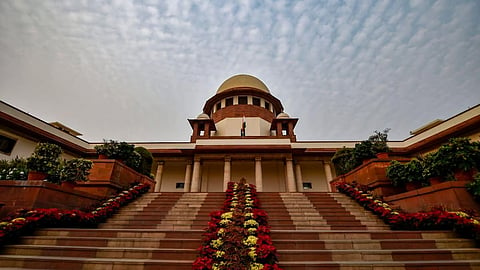

NEW DELHI: The Supreme Court on Monday emphasised the importance of waste segregation for environmental health, directing the Central Pollution Control Board (CPCB) to submit a report on the impact of waste-to-energy projects on public health and the environment.
The Court noted that waste segregation begins at home and is crucial for the well-being of the environment.
The two-judge bench, led by Justice Abhay S. Oka and Justice Ujjal Bhuyan, made the observation during a hearing on a petition filed by environmentalist MC Mehta, addressing pollution concerns in Delhi-NCR.
The Court examined issues such as stubble burning, solid waste management, industrial pollution, and construction dust.
The bench raised questions to the National Capital Region (NCR) states, which comprises Delhi and certain districts of Haryana, Uttar Pradesh and Rajasthan, about their smart city projects and how they have implemented proper waste segregation at the source, as per the Solid Waste Management Rules, 2016.
During the hearing, Senior Advocate and Amicus Curiae, Aparajita Singh, highlighted that waste-to-energy projects, often seen as a solution to the city’s garbage crisis, would fail without proper segregation. “NCR has a low percentage of waste segregation, with bio-waste being mixed with plastic in many households,” she said.
In response, the apex court instructed the NCR states to file detailed affidavits by the end of March, outlining the level of compliance by their urban bodies with the 2016 rules.
The Court sought answers on the comprehensive waste management plans, including timelines and implementing agencies, from the states.
The SC had previously criticised the Delhi government for failing to comply with the Solid Waste Management Rules, 2016. In many hearings, the Court pointed out that Delhi’s solid waste management was in a “sorry state” and could lead to a public health emergency.
The Court had earlier noted that Delhi generates over 11,000 metric tonnes of solid waste daily, while waste treatment plants can process only 8,073 metric tonnes.
“The daily generation of over 3,000 tonnes of untreated solid waste could lead to a public health emergency,” the bench had said.